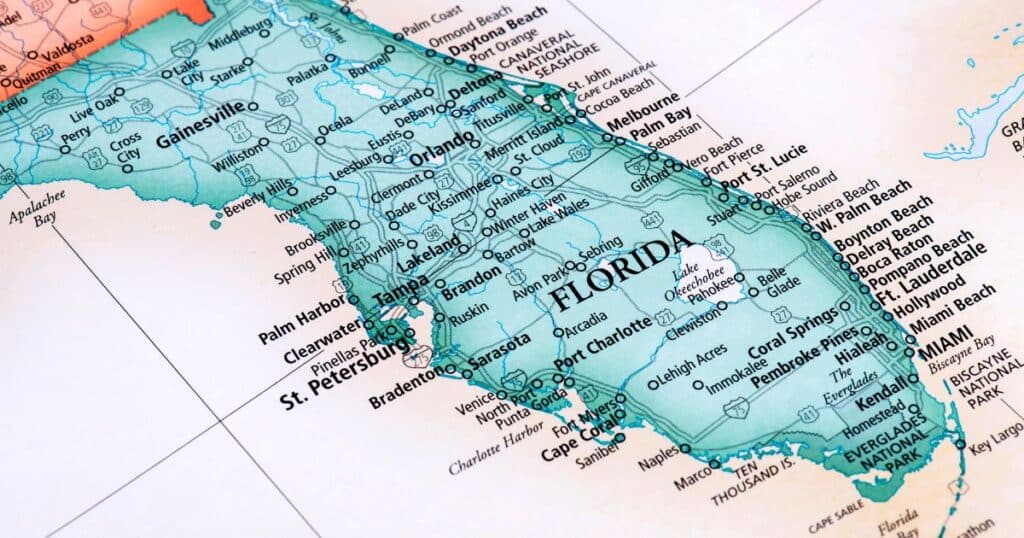As the debate over the legalization of recreational marijuana heats up in Florida, a new player has taken center stage: the proposed THC potency cap bill—HB 1269. With the state’s Supreme Court yet to rule on whether a constitutional amendment for legal adult-use cannabis will even make it onto the 2024 ballot, state legislators are already laying the groundwork for potential regulatory frameworks. But what does this bill propose, and how is it being received by various stakeholders?
Understanding the THC Cap Bill
The crux of HB 1269 is the proposed limits on THC potency for various forms of recreational cannabis. If passed, the bill would lock in caps at 30% for marijuana flower intended for smoking and 60% for extracts and other infused products. Edibles wouldn’t be spared either, with a proposed cap of 200 milligrams of THC for a package and 10 milligrams for an individual serving.
While an original 2021 proposal for medical marijuana in the state was more stringent and quite frankly ridiculous, it aimed for a paltry 10% THC limit cap.
“To my knowledge, there isn’t anywhere or anywhere in the world a credible scientific study that shows a medicinal value of THC in concentration over 10% so I think that’s why that’s the basis for the 10% cap on smokable that’s the science behind,” said Republican Rep. Spencer Roach during a meeting of the House Healthcare Appropriations Subcommittee in 2021 as reported by WFSU.
The strict THC cap even garnered the attention of the largest legal cannabis company in Florida, Trulieve, who is financially backing the recreational bill-in-waiting.
🚨Florida, Defend Your Right to #cannabis THC 🚨Stop the THC cap 🌿
— Trulieve (@Trulieve) January 31, 2024
"HB 1269" – would make Florida the most restrictive state in America by severely limiting THC content to only 10%.
And Your Voice Matters! Please Take Actions with Us TODAY & call now: https://t.co/3cI5fb4x7z pic.twitter.com/3lZQM0zFHE
A recent amendment by Florida Representative Massullo to increase this to 30% reflects some semblance of responsiveness to the market and consumer needs. However, questions linger about the arbitrary nature of these caps and their potential impact on the cannabis industry’s growth in Florida.
Preempting the Voters’ Choice
The current push for potency caps is a proactive—some may say preemptive—move by legislators who anticipate the possible passage of the recreational marijuana amendment. It’s important to recognize that the bill is not a reactionary measure to a legal framework already in place; it is a vision for the future of cannabis regulation in the state.
Yet, preemptive as the bill may be, its essence raises eyebrows among advocates and industry experts. The concern isn’t just about regulating a substance before it’s even legal—rather, it’s the practicality and necessity of these regulations at all.
For instance, by capping THC levels, lawmakers might inadvertently drive up costs, dismantle consumer safety provisions, and alienate a segment of the market that could turn to the illicit space for their cannabis needs. This is particularly true for medical patients who require higher concentrations of THC for therapeutic efficacy and whose products could consequently become more expensive or even unavailable under such caps.
Legislative Wisdom or Overreach?
The proponents of the THC cap bill argue that it’s a matter of public safety and that politicians should be preemptive in addressing potential health concerns. However, this approach seems to depart from prevailing models in other states, where the market plays a significant role in defining the parameters of product potency.
Notably, the inevitability of oversight in the form of childproof packaging, clear dosing information, and strict product quality standards is already a feature, not a bug, of most state-level cannabis regulations. Therefore, the necessity of a blanket cap on potency could be seen as an overreach.
Political Intrigues and Public Health
Florida Governor Ron DeSantis, an opponent of cannabis legalization, has voiced his anticipation for the court’s approval of the proposed amendment, signaling the potential for the bill’s enforcement in the future. However, the broader political landscape remains fraught, with questions about the intersections between legislative power, public health, and voter rights looming large.
The narrative around the THC cap bill underscores a broader debate about the role of lawmakers in cannabis regulation. Critics of the bill argue that it is not within the purview of politicians to define the psychoactive limits of a plant, especially without scientific evidence or a clear public mandate derived from the ballot box.
The Path Forward
As Florida inches closer to potentially introducing recreational marijuana into its market, the conversation should be broader, more inclusive, and rooted in an understanding of the varied uses of cannabis. Lawmakers must engage with medical experts, industry leaders, and, most importantly, the public to shape a regulatory environment that balances access, safety, and consumer needs.
The high stakes of the THC cap bill could serve to galvanize the pro-cannabis movement in Florida, drawing attention to the nuances and complexities of legalizing a once-taboo industry. The challenge for proponents of sensible cannabis legislation will be to ensure that any regulatory measures adopted are not simply founded on perceptions and misgivings but on evidence-based policy and the will of the people.

In the end, the THC cap bill may serve as a litmus test for Florida’s approach to cannabis legalization. Whether it will become a blueprint for responsible cannabis reform or a footnote in the state’s tumultuous journey toward a new normal remains to be seen.
One thing is for certain: the eyes of the nation are on Florida, watching to see how this pivotal moment in the state’s history unfolds and how it will shape the future of cannabis policy across the state.
Enjoyed that first hit? Come chill with us every week at the Friday Sesh for a freshly packed bowl of the week’s best cannabis news!


















